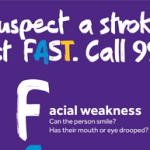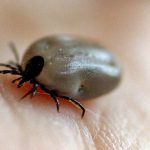
1 heart.
2.5 billion beats.
200 million litres of blood pumped.
In the average lifetime, that is how much work your one heart will do. It carries fuel, oxygen, hormones, and a whole load of other essentials to every part of your body including the liver. It takes away the waste products we produce. Given everything that is relying on it to work properly, it makes sense to try to take care of it.
There are 152,00 deaths from heart and circulatory diseases in the UK every year, over 25% of those are premature.
Here are some factors to keep in mind for keeping your heart healthy.
Smoke-Free
Smoking reduces the amount of oxygen in your blood and damages the blood vessels. It can cause the arteries to narrow and clog. It also makes the blood vessels stiffer, which can make them more likely to split.
By stopping smoking, you can begin to help your heart to heal. Within one year of quitting your risk of heart attack and stroke is halved. Within 5-15 years the risk is that of someone who has never smoked. Don’t think that it is too late and that the damage is done, regardless of what countless ballads would have you believe, the heart can heal.
Cholesterol Levels
Keep an eye on your blood cholesterol levels. Cholesterol is an essential fatty substance carried in the blood, but if there is too much it can begin to build up and begin to clog the blood vessels. Keeping a healthy diet will help prevent cholesterol build up, and keep your heart healthy.
Blood Pressure
Blood pressure that is high over a prolonged period of time is one of the main risk factors of heart disease. There are several factors the influence blood pressure:
- Family history
- Diet (including salty foods)
- Alcohol intake
- Physical activity
- Smoking
If you have high blood pressure, consider making changes to your diet, exercise, and weight to help to manage the condition.
Diabetes
People with diabetes have a higher risk of heart conditions, it is essential to keep diabetes maintained to reduce the risk of heart disease.
Exercise
Regular, moderate activity is perfect for keeping your heart healthy. Walking is ideal exercise for helping to prevent heart disease. A sedentary lifestyle also plays a role, so doing exercise when at work can be a big help to keeping moving.
Diet
Nutrition and heart-healthy diets are not about a quick fix, but a lifetime change in diet. It relies on a wide combination of foods that affect our whole body, including our brain, gut and emotions.

- Fruit and vegetables – The high fibre, vitamins and minerals have been shown to link to a lower risk of heart disease.
- Healthy protein foods – not all protein is healthy. Focus on more lean proteins such as fish, seafood, eggs, lean meat and poultry, seeds and nuts.
- Healthy dairy choices – choose reduced fat dairy foods where possible. Yogurt is a great probiotic. Dairy itself is a good source of calcium and other vitamins and minerals, but it is important to make sure that the fat intake is not too high. NHS gives dairy advice here.
- Healthy fats – we discussed cholesterol earlier. There is “good” cholesterol (HDL), and “bad” cholesterol (LDL), some fats help to reduce the bad cholesterol. Use nuts, seeds, avocados, olives, and their oils for cooking with.
- Salt – too much salt increases your risk of heart disease and high blood pressure. Use herbs and spices to flavour food instead of salt, and don’t add extra salt to meals.
Alcohol
Drink plenty of water, and reduce alcohol intake – consider having drink free days to begin to change your alcohol routine.
Mental Health
The risk of heart disease increases with depression, or social isolation. Have a read about the benefits of volunteering, they may be bigger than you thought. We have superfoods and thinking strategies to combat stress. Please don’t suffer in silence. If you need mental health support, talk about it. It affects your heart as well as your mind.
The NHS has an online test that you can do to see How Healthy Your Heart Is, and gives more advice on how to improve it.
Sources:
DocHQ Ltd is a Health Tech company improving choices. We help you connect efficiently to health support and advice whether you are at home, work or travelling. See our website for our services or call us on 0330 088 0645.



